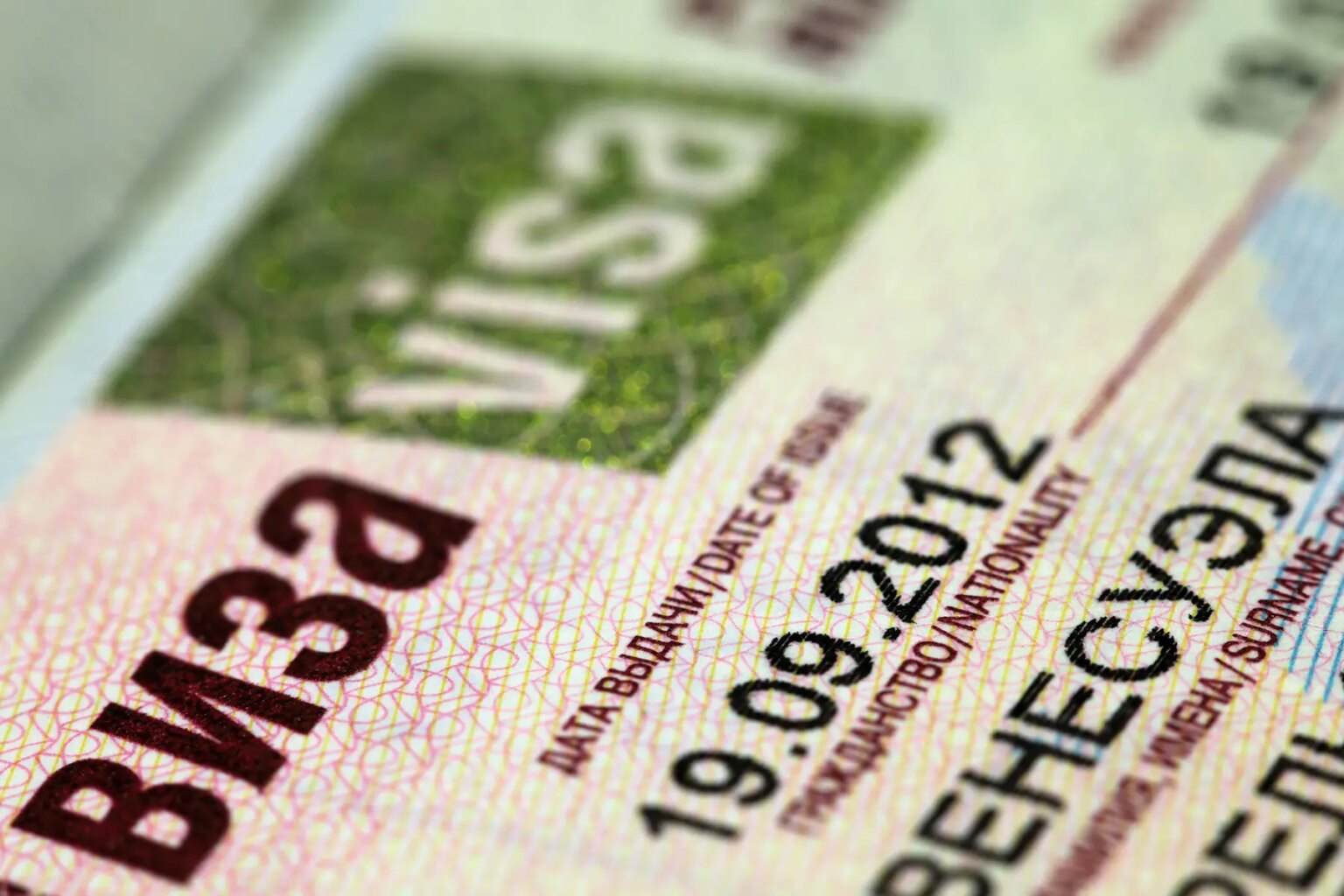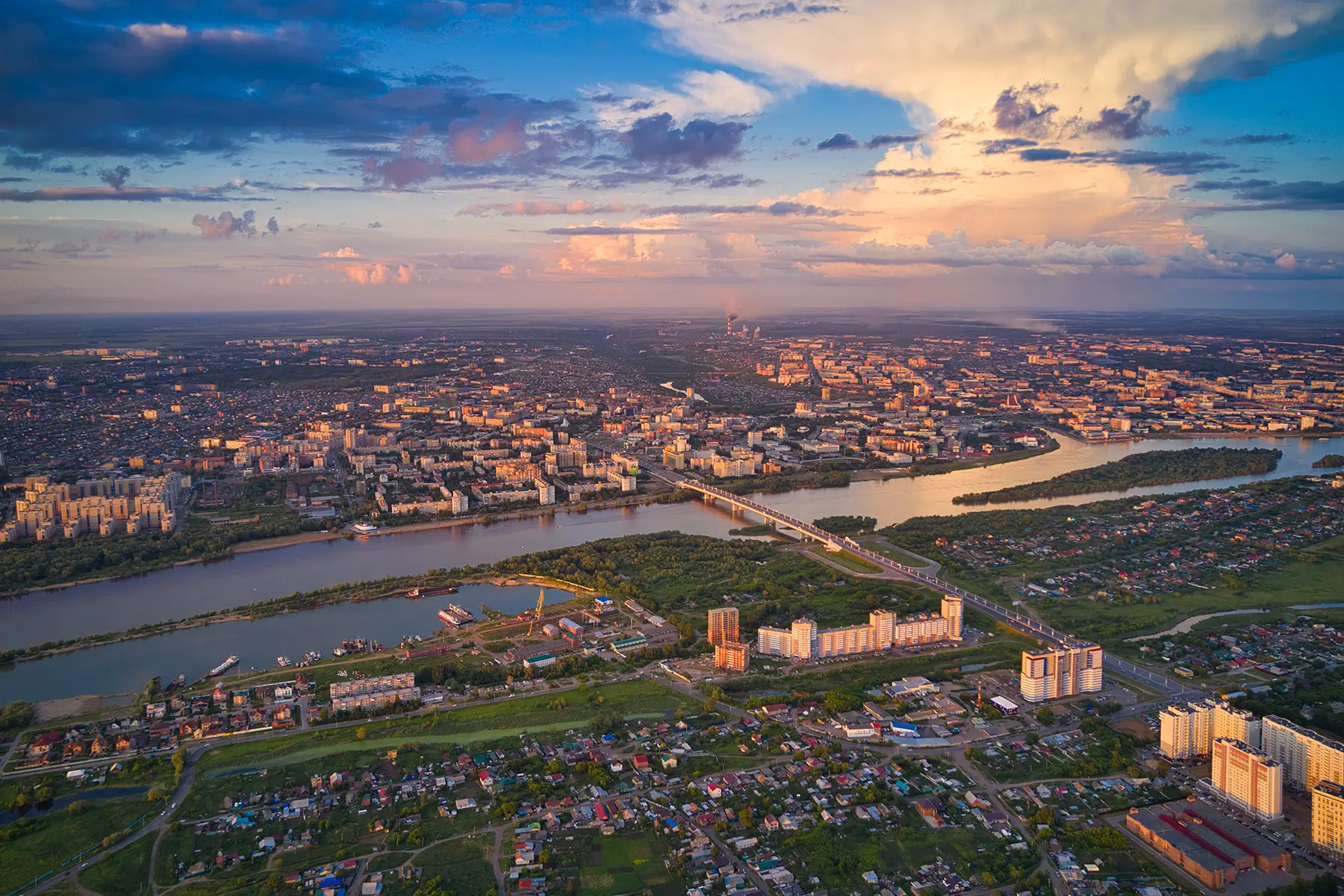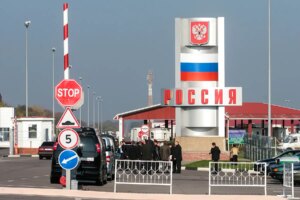Important notice from the Editor in Chief
Maintaining our Russian site is a delicate matter during the war. We have chosen to keep its content online to help our readers, but we cannot ensure that it is accurate and up to date. Our team endeavors to strike the right balance between giving information to those who need it, and respecting the gravity of the situation.
Russian visa policy is complex, with strict controls for issues such as illegal employment and criminality. There are different regulations depending on where you are from, procedures foreigners must carry out, and some areas visitors cannot travel to.
This guide to Russian visas and permits includes the following topics:
- Who needs a Russian visa or permit?
- Types of Russian visas
- Areas with restricted access in Russia
- Applying for a Russian entry visa
- Russian visa costs
- Rules to remember regarding your visa
- Visa application for a Russian residence permit
- Working with a Russian visa
- Studying with a Russian visa
- Getting a Russian visa to join a relative or partner
- Applying for a visa for citizenship or permanent residence purposes
- Useful resources
Who needs a Russian visa or permit?
Citizens of most countries need a visa to travel to Russia. You must get this before arriving in Russia. Although a European country, Russia is not part of the EU/EFTA; it does not grant visa-free travel to countries within the EU/EFTA.
Russia allows visa-free travel for 90 days to member states of the Commonwealth of Independent States (several countries that were formerly part of the Soviet Union) plus Cuba. Citizens of the following countries can travel to Russia for 90 days without a visa: Armenia, Azerbaijan, Belarus, Cuba, Kazakhstan, Kyrgyzstan, Moldova, Tajikistan, Ukraine, and Uzbekistan.
Citizens of the following countries can enter Russia without a Russian visa but can only stay for periods of between 14-90 days and for certain purposes – Argentina, Bolivia, Bosnia and Herzegovina, Brazil, Brunei, Chile, Colombia, Croatia, Dominican Republic, Hong Kong, Iceland, Israel, Macedonia, Montenegro, Mozambique, Nicaragua, Peru, Panama, Paraguay, Serbia, South Africa, Thailand, Uruguay, and Venezuela.
Further details on the length of stay and conditions are available here.
Citizens of all other countries will require a Russian visa in order to enter Russia.
Types of Russian visas
All Russian visas are issued by the General Directorate for Migration Affairs (GUVM). There are various types of Russian visas issued, depending on the purpose and length of visit. The visa length is usually between 30–90 days although many can be extended. The below types of visa are referred to as Russian entry visas.
Russian tourist visa
This is the standard visa that allows entry as a tourist. It is valid for 30 days and cannot be renewed. To obtain a tourist visa, you must have confirmed accommodation for the duration of your stay in Russia.
Russian business visa
This is a visa for those visiting the country on official or private business. The standard business visa is valid for 90 days. There is also a Multi Russian Business visa which is valid for a year and allows multiple entries into Russia. Business visas are eligible for renewal upon expiration, but this must be via the organization that provided the invitation for your business visa. Business visas can also be used for commercial visits such as attending events such as auctions.
Russian private visa
This is a Russian visa valid for up to 90 days based on a private invitation from friends or relatives who live in Russia.
Russian humanitarian visa
This is a visa valid for up to a year with multiple entries for those entering Russia for any of the following purposes:
- Cultural purposes
- Purposes related to science
- Political purposes
- Sporting purposes
- Religious purposes
- Charitable purposes
- Delivery of humanitarian aid
Russian work visa
This is a Russian visa valid for 90 days with the possibility of extension, based only on a work invitation from a Russian company
Russian student visa
This is a Russian visa valid for 90 days with the possibility of extension, based only on a student invitation from a Russian college or university.
Russian Highly Skilled Migrant Visa
This is a special visa for those in skilled professions who gain employment with a salary of over R1 million. This visa is valid for three years, enables the holder to bypass the temporary residence permit requirement and entitles relatives including spouses, children and parents to a visa.
Family Member of Russian Citizen Visa
This is a Russian visa for spouses, children under 18 and incapacitated children who are family members of Russian citizens are entitled to a Family Member visa if the relative who is a Russian citizen signs a visa request form. This visa is valid for 3 months.
Russian Transit Visa
A Russian transit visa is necessary if you are traveling to somewhere via a Russian airport(s) or through Russia by train. Transit visas are normally valid for a maximum of three days for air travel and 10 days for train travel.
A Russian transit visa is not usually necessary if you stay in an airport transit zone in order to board a connecting flight within 24 hours of arrival. Check with your airline to see if you require a transit visa.
Russian Special Purpose Visa
This is a visa valid for up to 30 days allowing you to attend special events taking place inside Russia.
Areas with restricted access in Russia
There are currently 18 regions in Russia that contain areas with limited entry for foreign nationals. These are:
- Kamchatka region
- Primor
- Krasnoryarsk region
- Orenburg region
- Nizhny Novgorod region (permission to travel in transit)
- Republic of Mordovia
- Murmansk region and Karelia
- Arkhangelsk and Komi Republic
- Sverdlovsk region
- Chelyabinsk region
- Leningrad region
- Moscow region
- Kaliningrad region
- Volgograd region
- Astrakhan region
- Chukotka Autonomous District
- Yamalo-Nenets Autonomous Area
- Republic of North Ossetia
See here for more detailed information.
Applying for a Russian entry visa
You must apply for a visa through the Russian embassy or consulate in your home country. A list of embassies and consulates worldwide is available here. It isn’t possible to apply for a visa inside Russia or at the Russian border.
Excluding the Tourist Visa and the Transit Visa, all visa types require an invitation from the GUVM branch in the area where you are staying. This is available via your visa sponsor (resident organization or individual who is inviting you to Russia). Your sponsor is probably best placed to sort this out, but a list of local GUVM offices can be found here.
For a tourist visa, you must provide a stamped tourist confirmation document from your travel agent or hotel. This confirms you have accommodation for the duration of your trip.
To apply for your visa, fill out a visa application form either online or at the Russian embassy. An English version of the form is available here.
You must also submit the following:
- copy of your passport
- a passport-size photograph not older than six months
- visa fees
- invitation from the appropriate GUVM branch (if applicable)
- medical insurance
- a certificate confirming the absence of HIV infection (if staying longer than 90 days)
- you may also be asked to provide bank statements to show proof of funds for the duration of the visit
You can find out full details of visa requirements from different countries, along with further information on how to get a visa here.
Some countries now require applicants to attend the Russian embassy in person for biometric scanning.
The processing time for a Russian visa is not long and can be as short as two days, although it is wise to apply a few weeks in advance.
Russian visa costs
Visa costs vary from country to country and depending on what visa type you opt for. In the UK, you can choose between a standard service (seven days) or a more expensive express service (two days). Russian visa costs in the UK start at £165.
Rules to remember regarding your visa
Registration requirements
All foreign visitors to Russia are required to register their stay at the local GUVM branch within 7 days of arrival. This will often be done by the organisation or individual who is sponsoring/inviting the visitor but it’s worth checking to ensure this is done. Failure to register with the GUVM can result in a fine and in some cases expulsion from Russia.
Migration card
The migration card is the identity document issued to all foreign nationals in Russia at the border and must be presented along with the passport whenever an identity check is required by Russian officials. If you lose your migration card, you need to report it to the nearest GUVM office and you will have to pay for a replacement.
Exiting Russia
In addition to allowing entry into the country, your entry visa also serves as your exit visa. You need to specify the exact day that you will be leaving the country and if you miss this date, leaving Russia could be problematic.
Visitors who overstay their visa by more than three days will need to apply for an exit visa to leave Russia, which can take up to 20 days to be issued. This can only be overturned if a valid reason (e.g., illness, stolen visa) is presented.
Visa application for a Russian residence permit
If you are moving to Russia, you will need to apply for a Russian residence permit at the local GUVM office either when you arrive in Russia or before your visa expires. All foreigners wanting to live in Russia, other than those from Belarus, refugees arriving from Turkmenistan and those arriving on a Highly Skilled Migrant visa, need to initially apply for a temporary residence permit, which is valid for three years (although it needs to be re-stamped by the GUVM every year).
Anyone who has legally entered Russia is entitled to apply for a temporary Russian residence permit. The Russian government operates on migration quotas and will prioritize applicants who meet at least one of the following criteria:
- born in Russia
- citizens of a former USSR country
- have a family member or partner who is a Russian citizen
- made a certain amount of investments in Russia (determined by federal law)
- served in the Russian military
- have had a child born in Russia
If you are working or studying in Russia for longer than three months, you will also have a strong case for being granted a temporary residence permit if you can present a letter of support from your employer/college to the GUVM.
Holders of a temporary residence permit cannot be absent from Russia for longer than three months and have to apply for an exit visa and a re-entry visa to travel away from the country.
Documents that need to be provided in order to obtain a Russian residence permit include:
- passport
- criminal record certificate
- two passport photos
- valid entry visa (if necessary)
- health certificate confirming absence of infectious diseases
- document confirming basic knowledge of Russian language, history and culture
Working with a Russian visa
It is possible to work in Russia if you have obtained a work permit through a Russian employer along with a valid work visa. This is valid for 90 days although it is possible to extend it for up to three years and get a temporary residence permit. See our article on Russian work visas and permits for even more information.
Studying with a Russian visa
You can come to Russia to study if you have obtained a study placement offer from a Russian college or university along with a Russian study visa. This is valid for 90 days although it is possible to extend it and get a temporary residence permit. See our guide to studying in Russia for even more information.
Getting a Russian visa to join a relative or partner
You can apply to join family or a partner in Russia on a Russian Private Visa if the family member invites you. Certain family members are eligible to apply for long-term residence under Russia’s family reunion laws. See our guide on joining a relative or partner in Russia for more information.
Applying for a visa for citizenship or permanent residence purposes
You can apply for permanent residence in Russia after one year of temporary residence and for full citizenship after five years. See our guide to Russian citizenship and permanent residence for more information.






